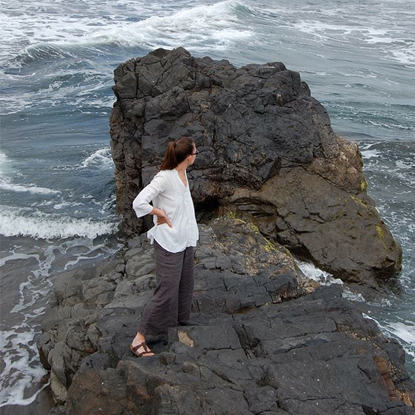Dr. Ann Ostendorf is currently working on the histories of the Roma (Gypsy) diasporas in the Atlantic World, including in the colonial Chesapeake, French and Spanish Louisiana, and the nineteenth-century United States. Her scholarly interests also include cultural history, studies of ethnicity and race, early Native American history, and the lower Mississippi River region. She enjoys yoga, vegetarian soul food, Fútbol Club Barcelona, world music, travel and the outdoors.
“The Limits and Opportunities of Romani American History.” Romani Studies 34(1) (2024): 13–38.
“Louisianští Romové: Konstrukce rasy v koloniálním Karibiku.” Romano Dzaniben 28 (2021): 33–55. (Louisiana Romani: Constructing Race in the Colonial Caribbean)
“Louisiana Bohemians: Community, Race, and Empire.” Early American Studies (Fall 2021): 659–698. Winner of the Louisiana Historical Association’s Glenn R. Conrad Prize for best article in Louisiana history.
“‘To Get Himself Out of Slavery”: Escape, Justice, and Honor in the Life of a Colonial French Louisiana Bohemian (Gypsy).” Frühneuzeit-Info 31 (Fall 2020): 140–156. “Novel Adventures: Using The Journey to the West to Teach Tang China History and Culture.” Education About Asia 25 (Fall 2020): 12–17.
“Racializing American ‘Egyptians’: Shifting Legal Discourse, 1690s–1860s.” Critical Romani Studies 2 (Fall 2019): 42–59.
“The Mythical Musical Boatmen: Integrating National Icons in Early American Culture.” American Music 37 (Summer 2019): 197–228.
“Music of the Early American Republic.” The American Historian 19 (February 2019): 14–19.
“Contextualizing American Gypsies: Experiencing Criminality in the Colonial Chesapeake.” Maryland Historical Magazine 113 (Fall/Winter 2018): 192–222.
“‘An Egiptian and noe Xtian Woman’: Gypsy Identity and Race Law in Early America.” Journal of Gypsy Studies 1 (2017): 5–15.
Sounds American: National Identity and the Music Cultures of the Lower Mississippi River Valley, 1800-1860. Athens: The University of Georgia Press, 2011.

